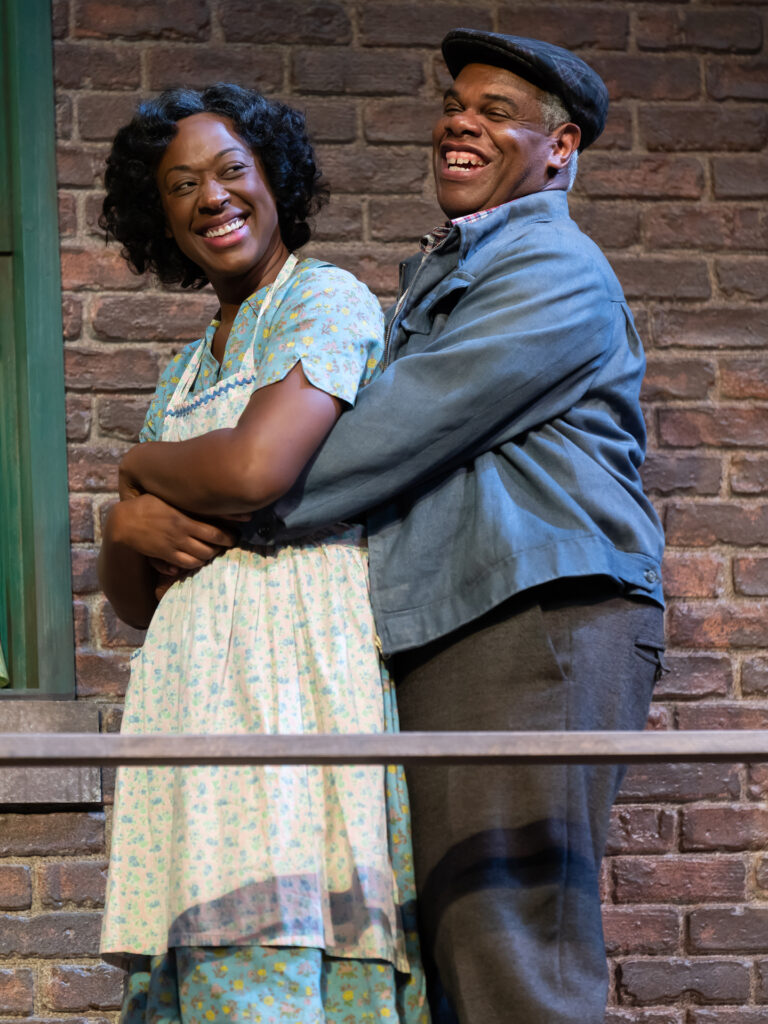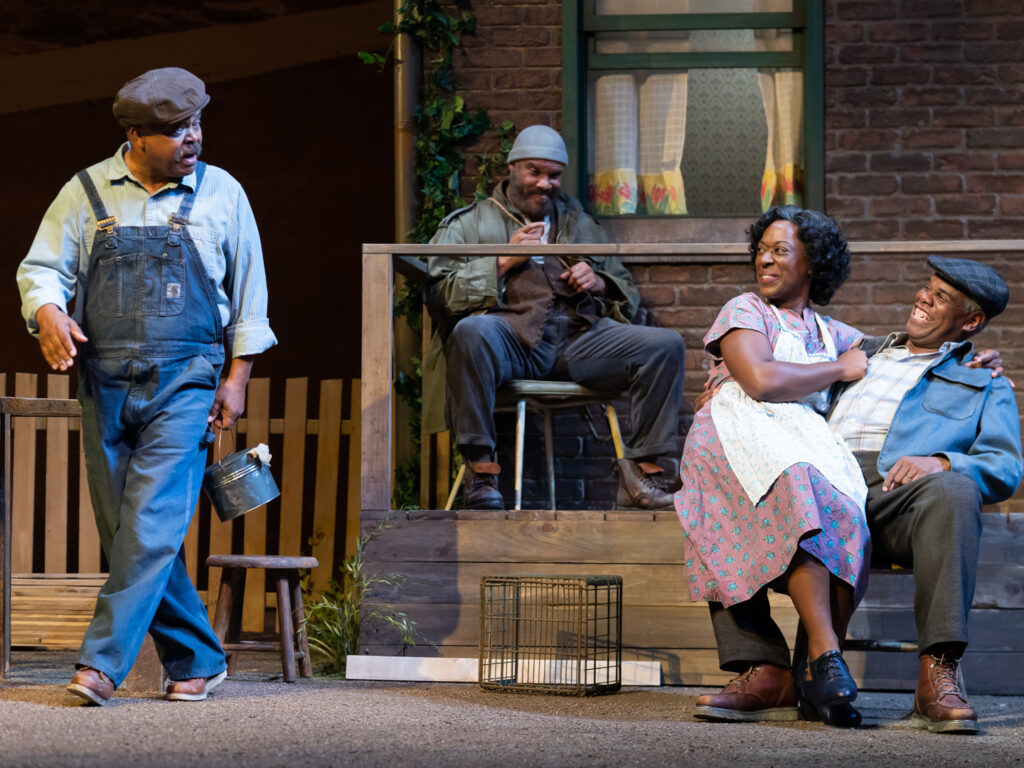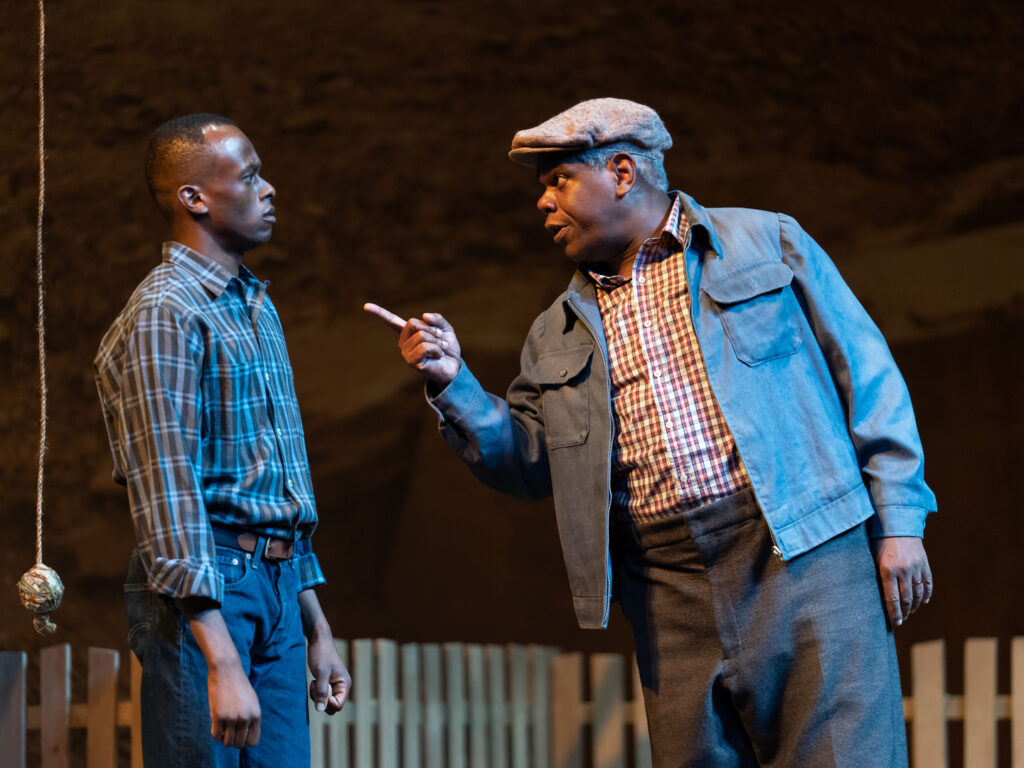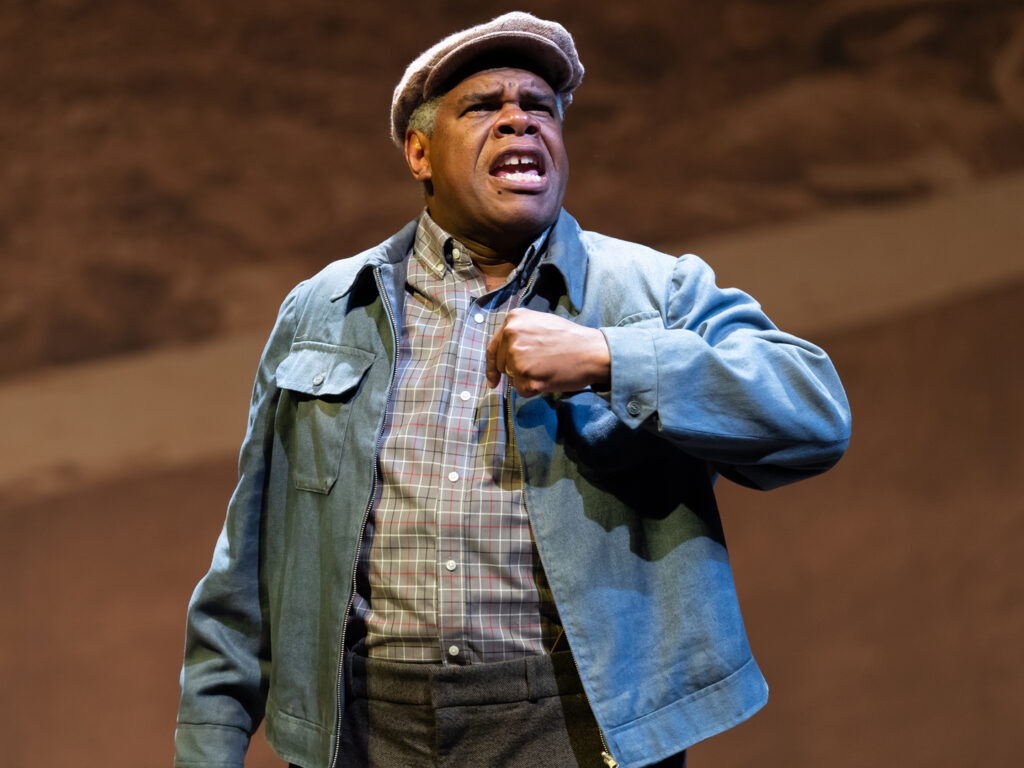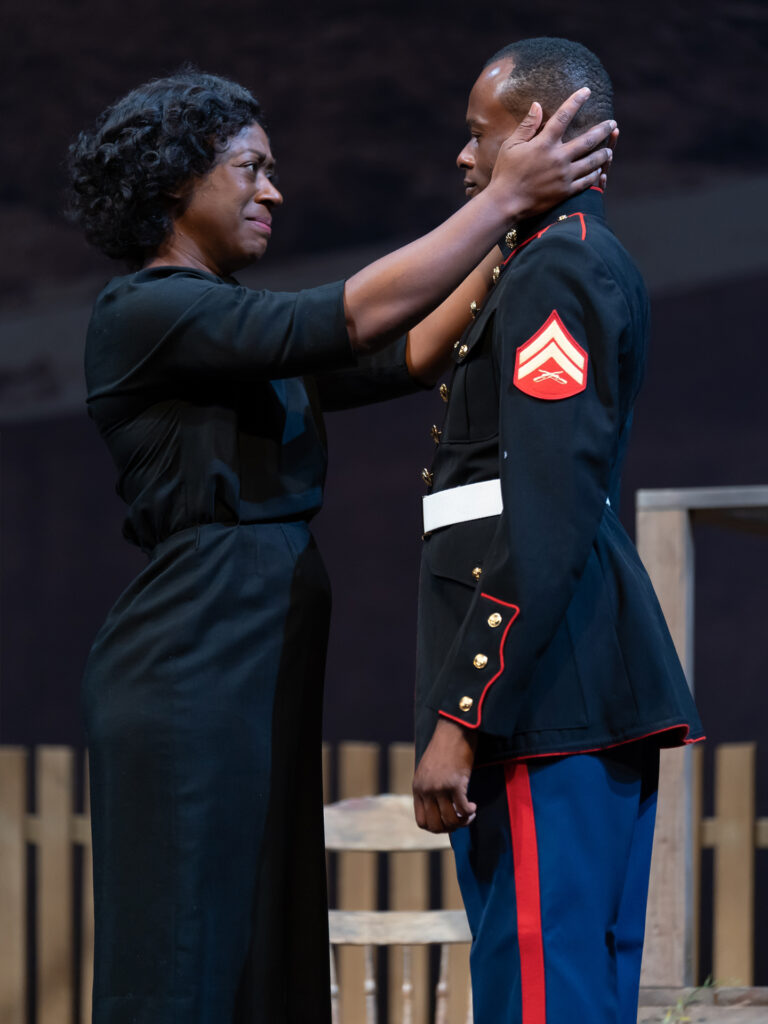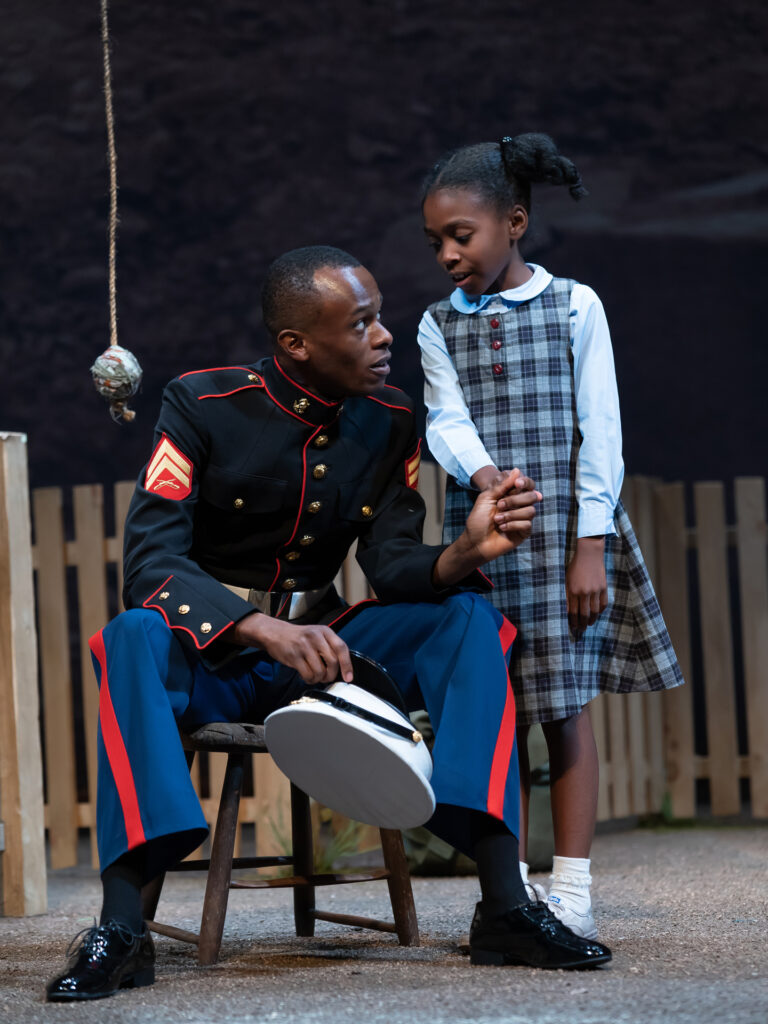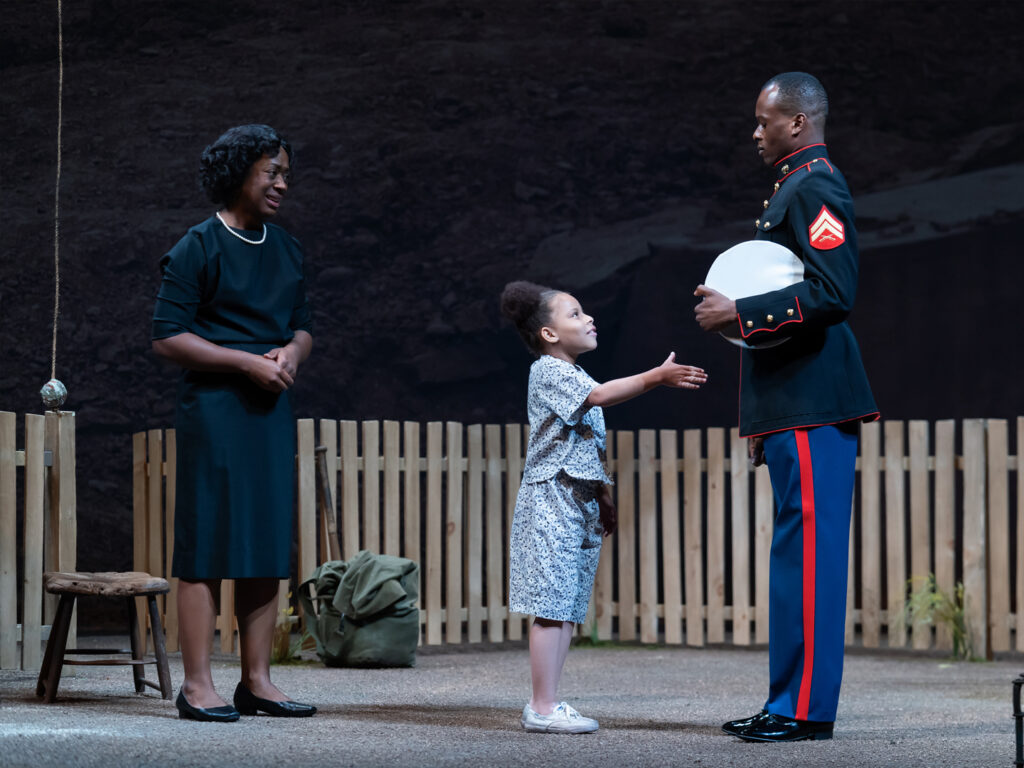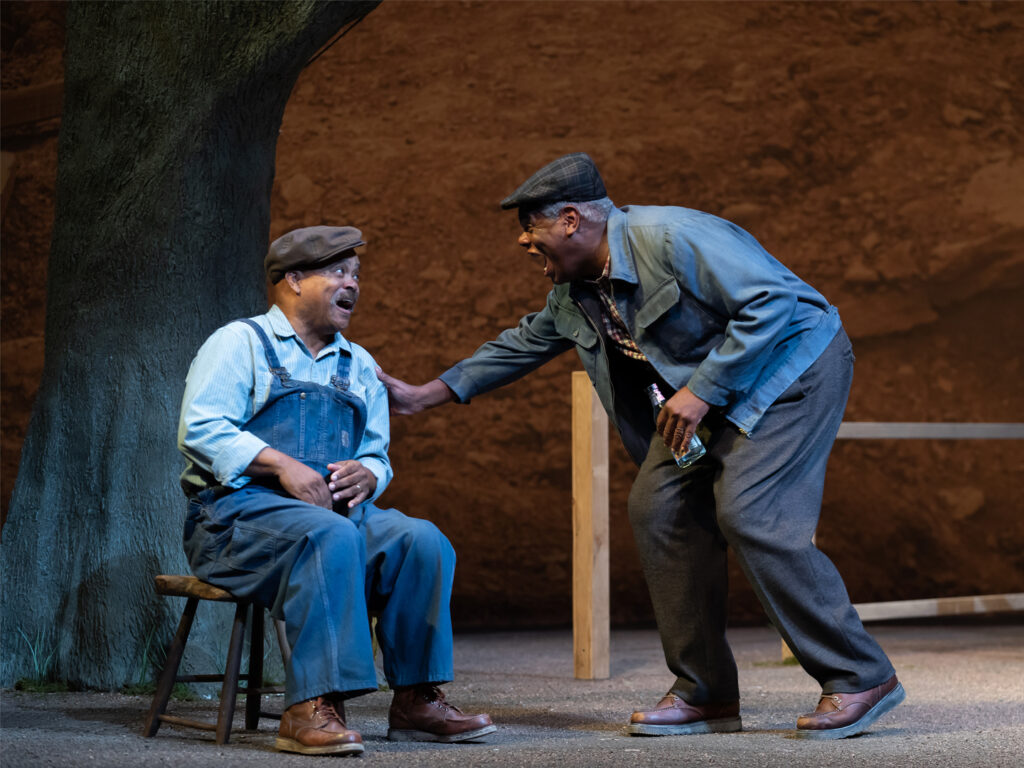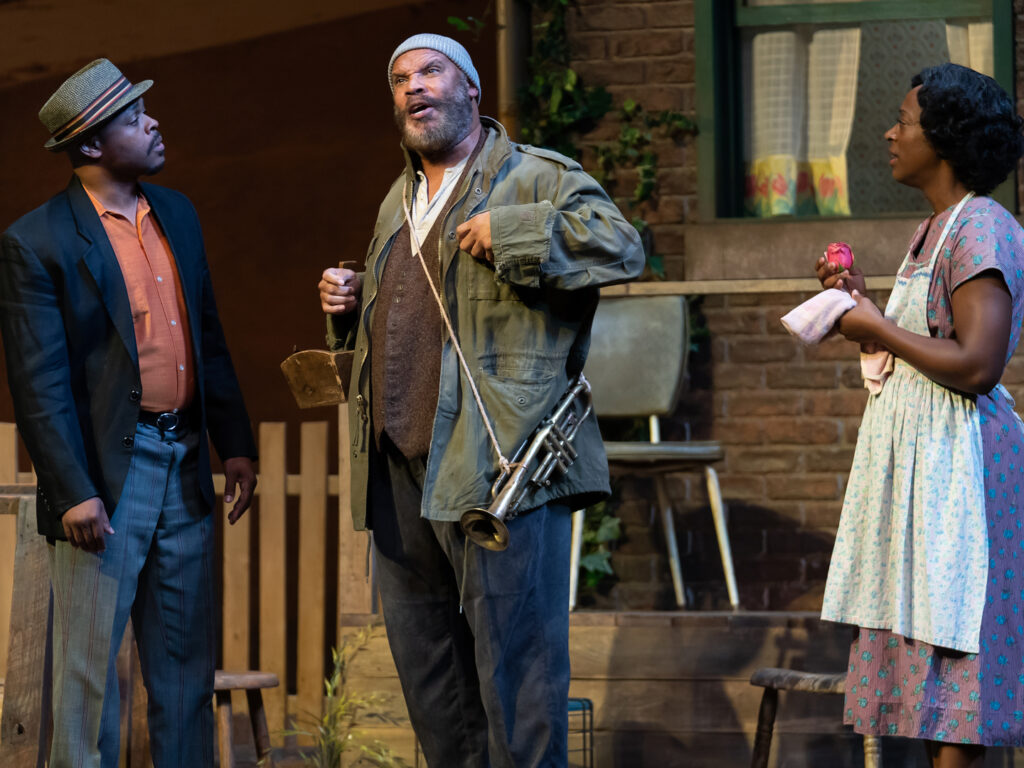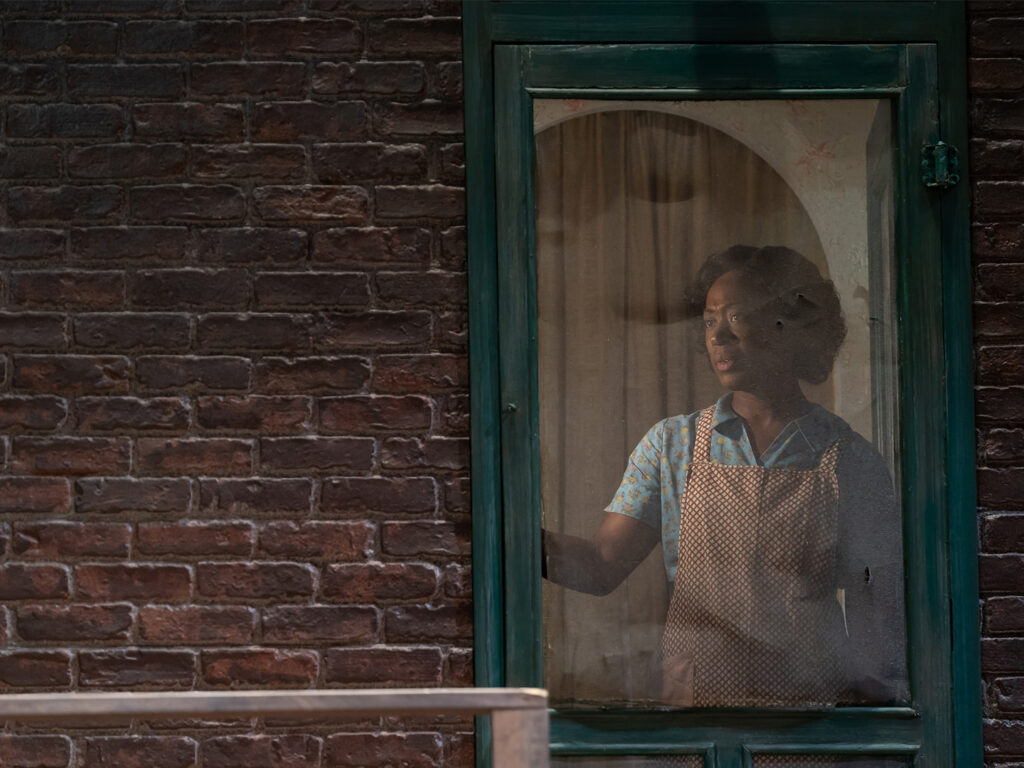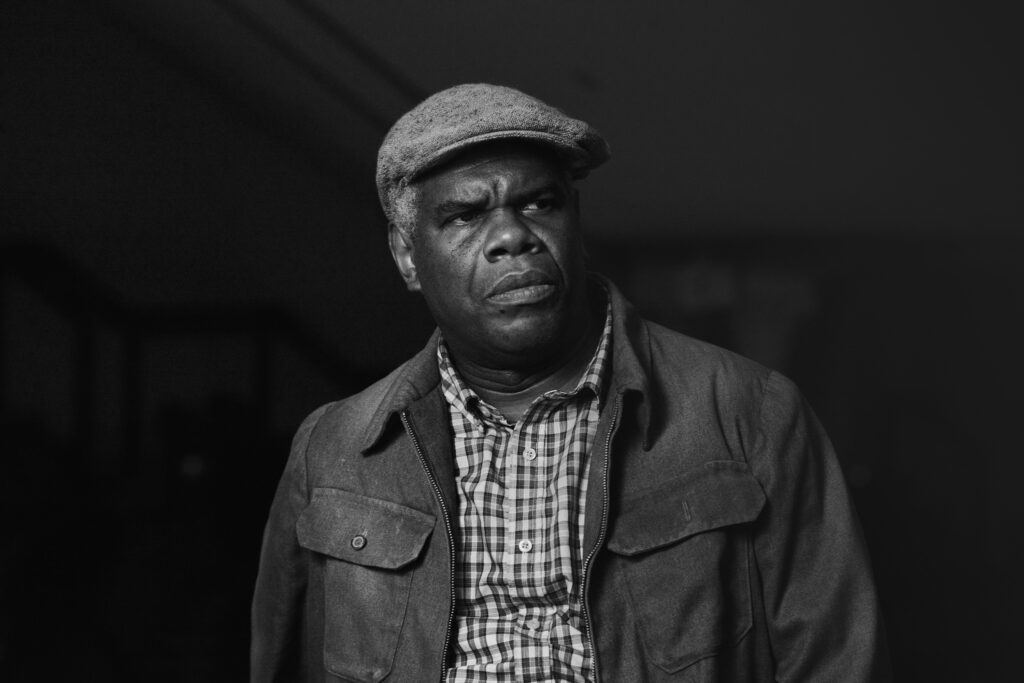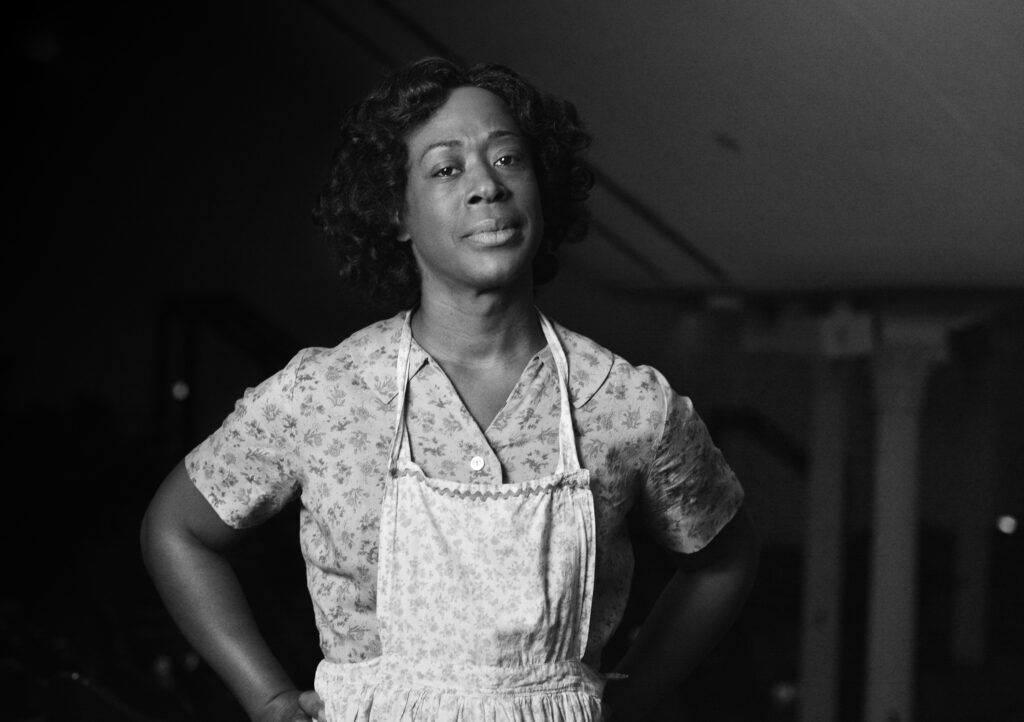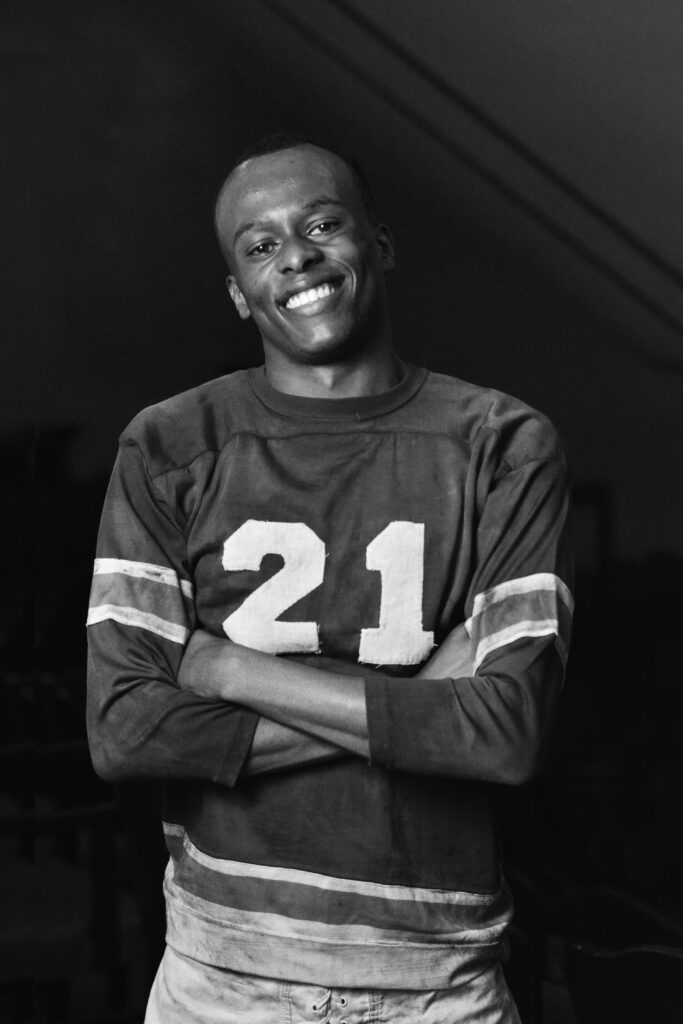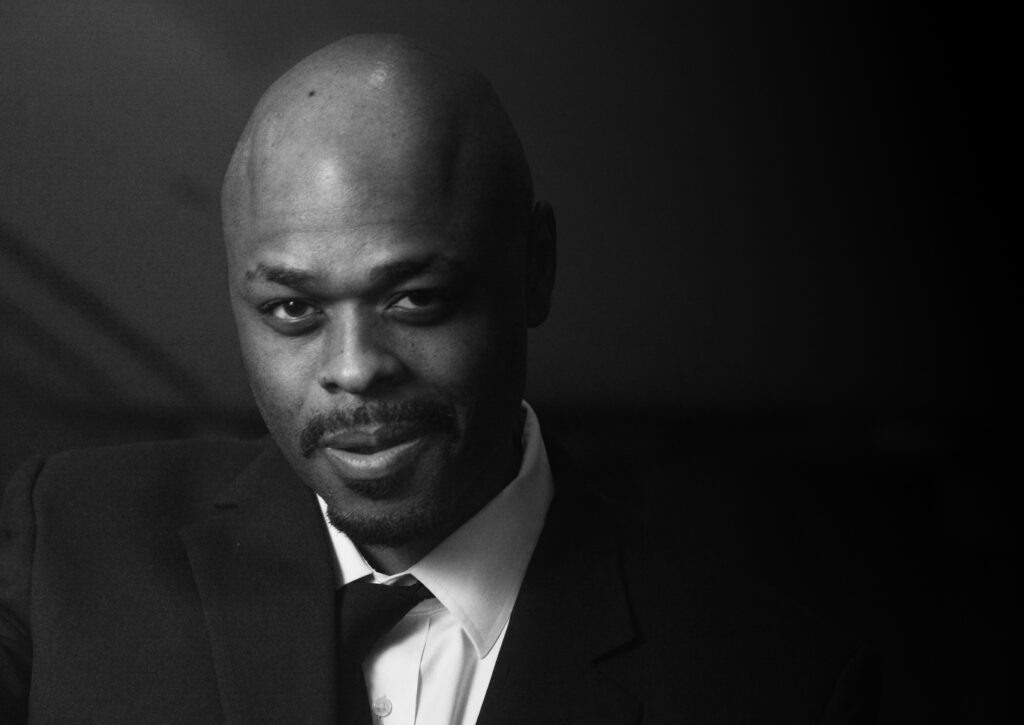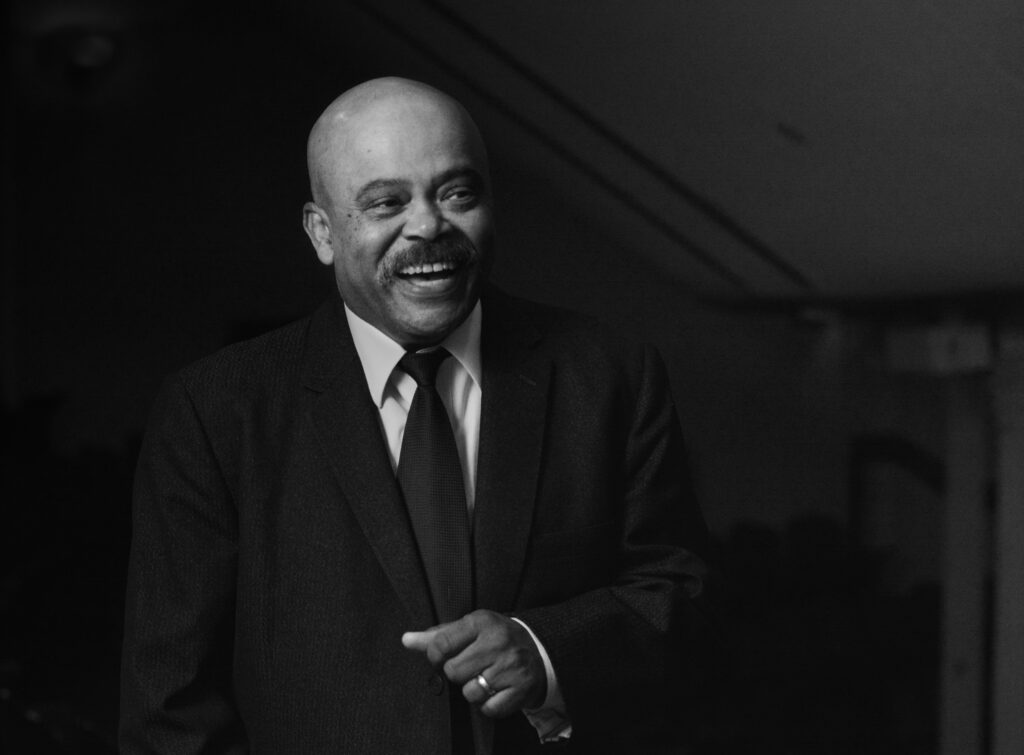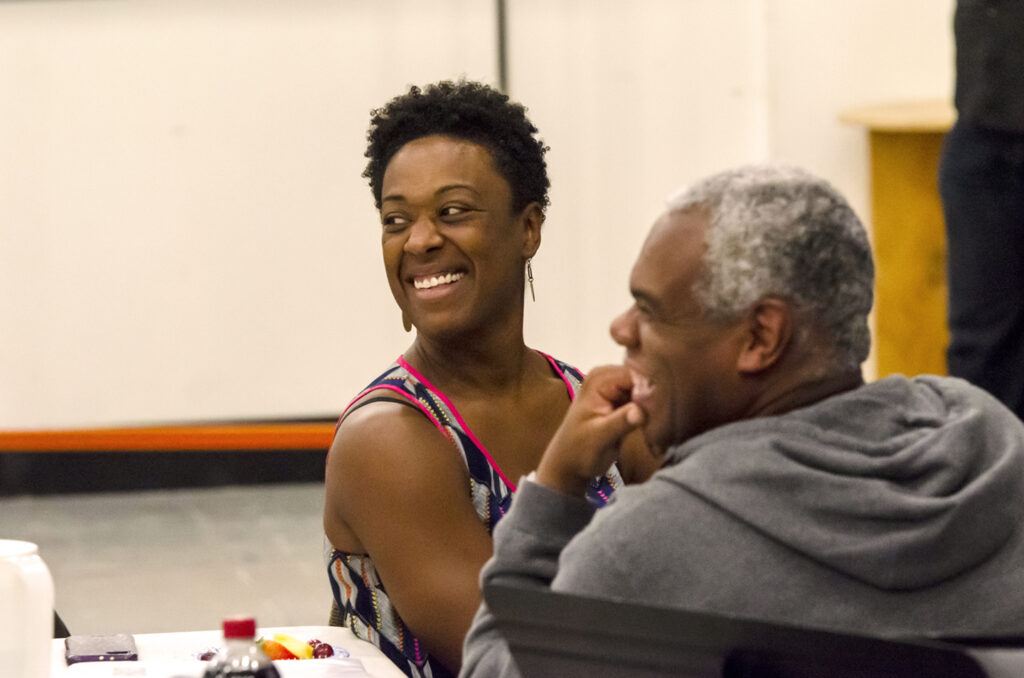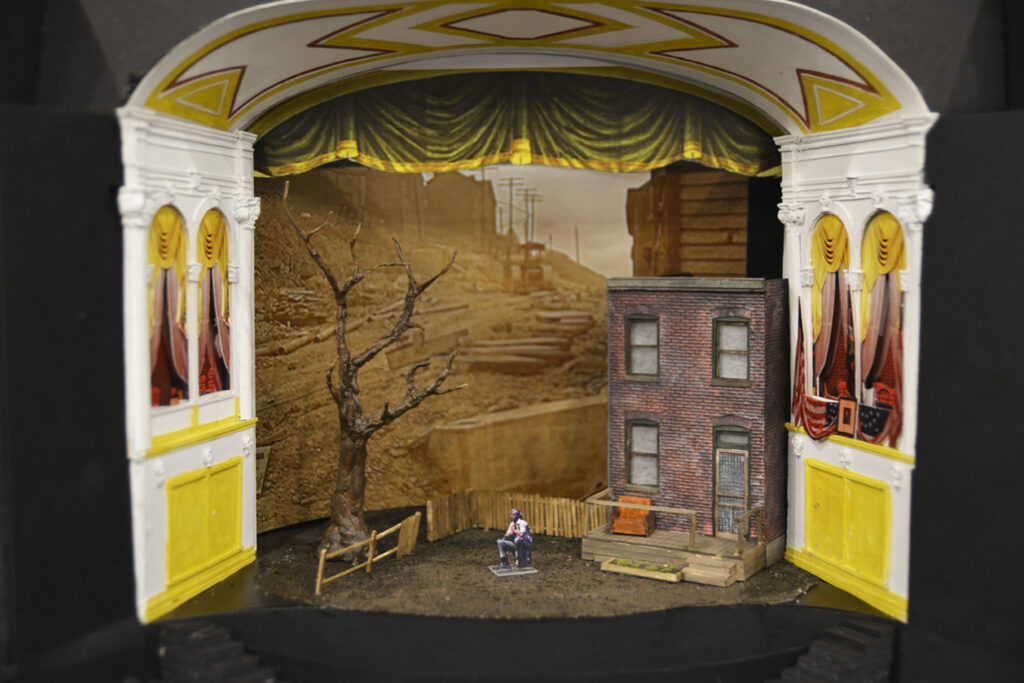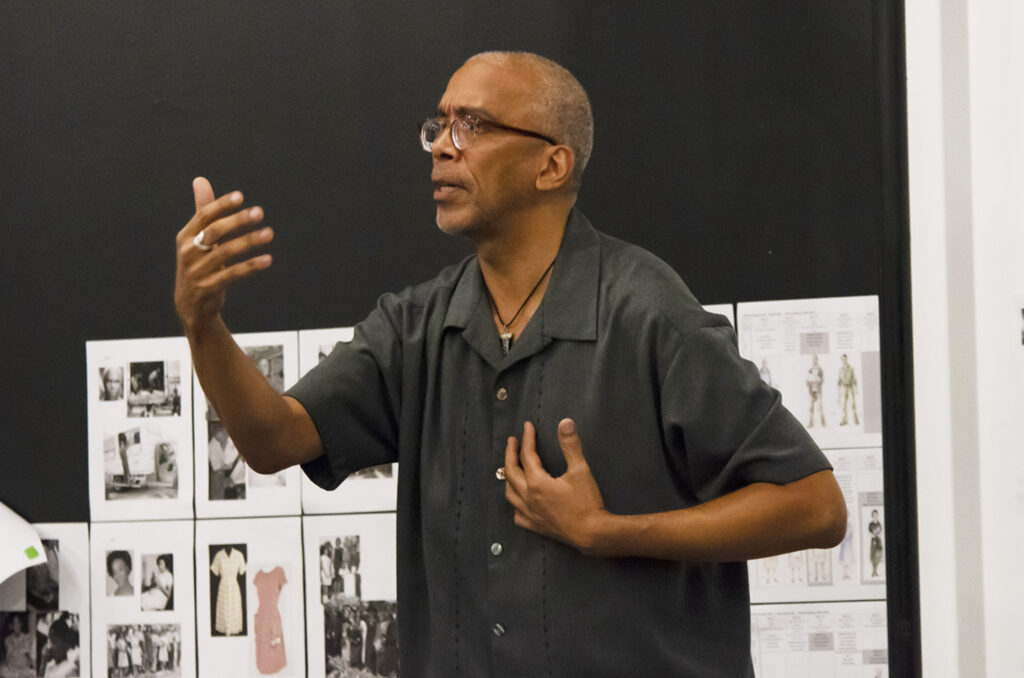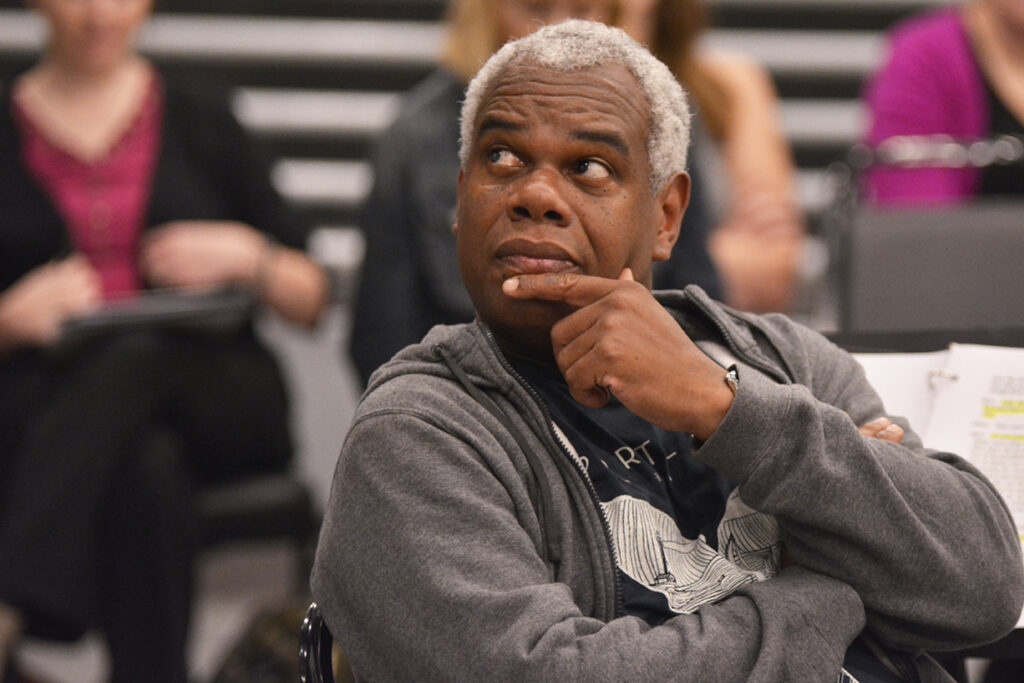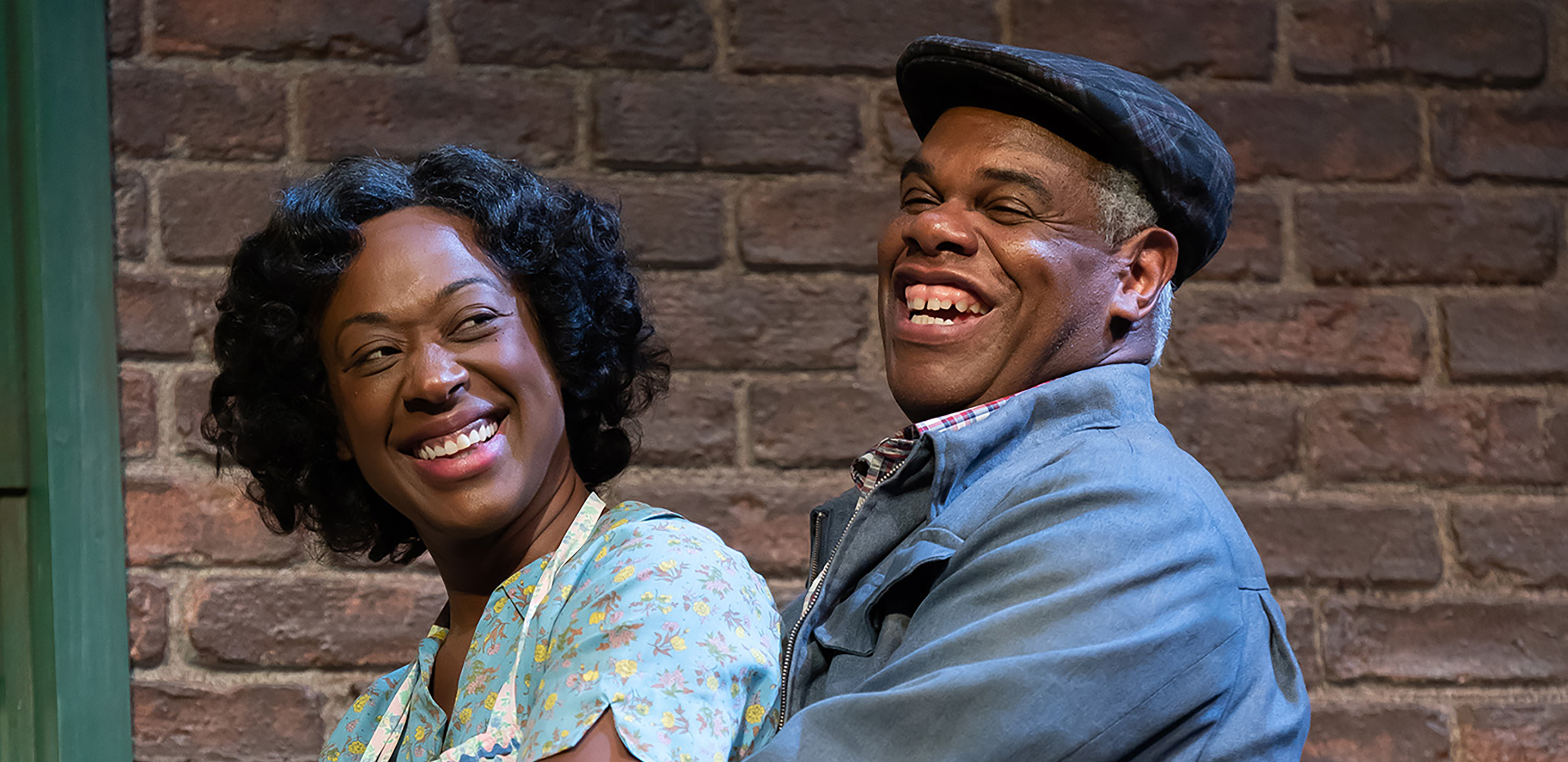
August Wilson’s Fences
August Wilson’s Classic American Drama
Set in segregated Pittsburgh in the 1950s, Fences depicts the life of Troy Maxson, a former Negro League baseball star now scraping by as a sanitation worker. A towering figure facing thwarted aspirations, Troy attempts to assert control in his life through his relationships with his wife and son. But even as he takes responsibility for their safety and well-being, he betrays them each in ways that will forever alter their lives. Part of August Wilson’s 10-play Century Cycle, Fences explores the walls we build around ourselves and our loved ones, while also illuminating one family’s struggles in a racist society.
Craig Wallace (A Christmas Carol, Death of a Salesman) and Erika Rose (Mosaic Theater Company’s Queens Girl in Africa, Woolly Mammoth’s An Octoroon) play the roles of Troy and Rose Maxson. The production will be directed by Timothy Douglas, one of the foremost interpreters of Wilson’s work.
This production is Helen Hayes Awards Recommended©.
Artistic Team
Cast
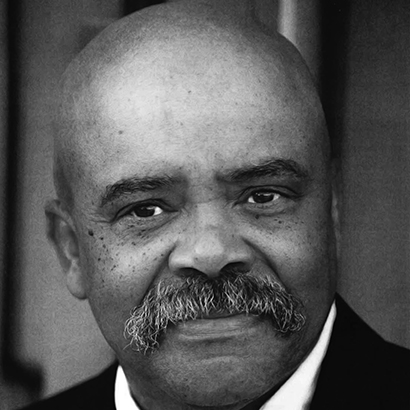
Doug Brown
Jim Bono
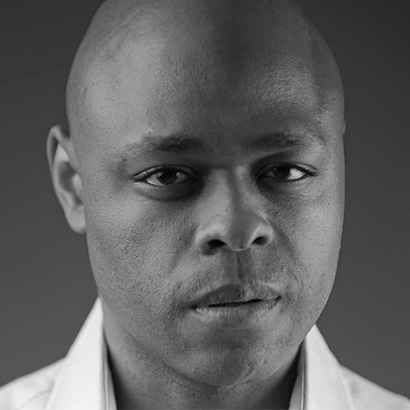
KenYatta Rogers
Lyons Maxson
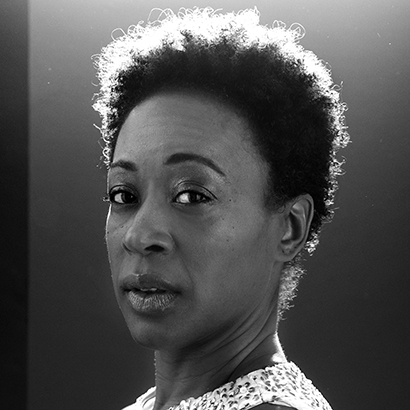
Erika Rose
Rose Maxon
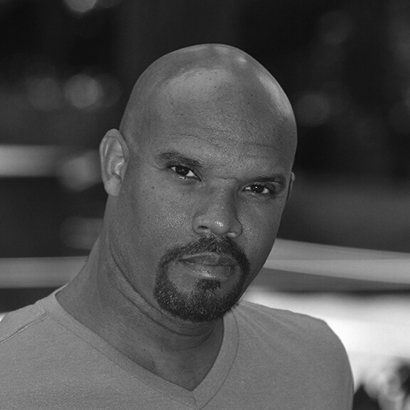
Jefferson A. Russell
Gabriel Maxson
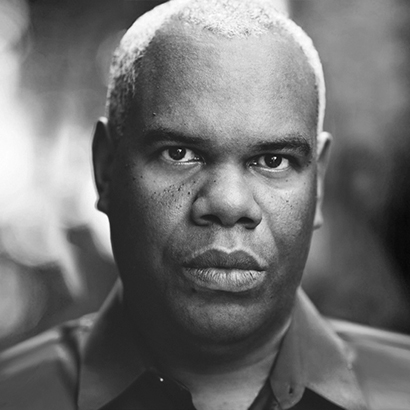
Craig Wallace
Troy Maxson

Justin Weaks
Cory Maxson

Janiyah Lucas
Raynell Maxson

Mecca Rogers
Raynell Maxson
Synopsis
The Gist
A former Negro League baseball player was not allowed to reach his full potential due to racial discrimination in the major leagues. Over the years, he has been consumed by bitterness, deeply affecting his relationships with his wife and son.
The Characters
- Troy Maxson
An aging sanitation worker searching for the American Dream, which has been elusive as a result of racism and segregation. - Rose Maxson
Troy’s wife, a homemaker and the linchpin that holds the Maxson family together. - Cory Maxson
Rose and Troy’s son, hopes to go to college with a football scholarship. - Gabriel Maxson
Troy’s younger brother, suffered a brain injury in World War II. - Lyons Maxson
Troy’s son from a previous marriage, constantly asks Troy for money. - Jim Bono
Troy’s best friend and fellow sanitation worker. - Raynell Maxson
Troy’s daughter.
Time and Place:
Pittsburgh, 1957
Things to Watch For
The Fence:
Rose asks Troy to build a fence around the yard in the beginning of the play, symbolizing both protection and confinement. As Jim Bono tells Troy in the beginning of Act 2, “some people build fences to keep people out and other people build fences to keep people in.”
Troy is simultaneously fenced out of major league baseball because of his age and fenced into his dead-end job as a garbage collector.
Baseball Lingo:
Throughout the play, Troy uses baseball as an analogy to describe the struggles and triumphs of his life. Because Troy was ultimately let down by the segregationist practices of the major leagues, baseball is often used to describe the ways that racism has affected him. He tells Rose in Act 2, “You born with two strikes on you before you come to the plate.” Troy also uses the baseball analogy to justify his decision making, explaining to Rose, “And I got to thinking that if I tried… I just might be able to steal second. Do you understand after eighteen years I wanted to steal second.”
Biblical Allegories:
After Troy’s brother, Gabriel, suffers a head injury in the war, he believes himself to be the Archangel Gabriel. His dialogue relates to salvation as he discusses judgment morning and chasing off the hellhounds. At the end of the play, as many of the characters grapple with how to forgive Troy, Gabriel exclaims, “It’s time to tell Saint Peter to open the Gates.”
Where, Why and When Was This Play Written?
August Wilson has been widely hailed as a defining voice in black American theatre. He grew up in the Hill District of Pittsburgh, a historically black neighborhood where Fences is set. Fences is part of Wilson’s Century Cycle, a series of 10 plays, each set in a different decade, that covers 100 years of the African-American experience. Wilson wrote Fences in 1983 and it premiered at the Yale Repertory Theatre in 1985.
Wilson’s work, and Fences in particular, brings to life the struggles of everyday black Americans, demonstrating the universality of themes like dignity, justice, and love. Wilson wrote in a 2000 essay in The New York Times, “I wanted to place this culture onstage in all its richness and fullness and to demonstrate its ability to sustain us in all areas of human life and endeavor and through profound moments of our history in which the larger society has thought less of us than we have thought of ourselves.”
Fences was such a resounding success that it went on to premiere on Broadway in 1987, featuring James Earl Jones as Troy Maxson and directed by Lloyd Richard. Fences won the 1987 Pulitzer Prize for drama and four Tony Awards, including Best Play. In 2010, Fences was revived on Broadway starring Denzel Washington and Viola Davis as Troy and Rose Maxson. The revival was nominated for 10 Tony Awards, including Best Revival of a Play. In 2016, Denzel Washington and Viola Davis starred in the film adaptation of Fences, earning four Oscar nominations.
Synopsis
Act I
The play opens on a Friday in 1957. Troy Maxson and his friend, Jim Bono, have just finished a long day of work as garbage men and head to Troy’s porch for a drink. As they chat, Troy mentions he has spoken to his boss about the rule prohibiting black men from driving garbage trucks. Troy’s wife, Rose, joins them in the yard and announces that their son, Cory, has just been recruited for a college football team. Troy worries that black men will never be given a fair shot in the professional league, recalling how he was better than many professional baseball players but was never allowed to play.
Lyons, Troy’s son from a previous marriage, drops by the house. He knows its Troy’s payday and asks for a loan. Troy lectures Lyons to stop playing music and get a steadier job but gives him the money anyway.
The following morning, Troy’s brother, Gabriel, stops by for a visit. Gabriel used to live with Troy because a head injury from the war left him mentally incapacitated. But Gabriel recently moved in with a neighbor. Later that afternoon, Cory and Troy get to work building a fence around the yard. When Cory reveals that he is working only weekends because of football practice, Troy gets angry and threatens him: he must get his job back or he won’t be allowed to play football.
Two weeks later, Troy announces that he has been made a garbage truck driver. But the mood darkens when he learns that Cory has gone to football practice instead of work. Because Cory disobeyed him, Troy has cancelled the recruiter’s visit and told the coach that Cory is quitting. Livid, Cory shouts, “You just scared I’m gonna be better than you, that’s all!”
Act II
The following morning, Troy tells Rose that he’s been seeing another woman and she is pregnant with his child. Troy claims he doesn’t love Alberta, but when he’s with her he can escape his responsibilities. Frustrated, Rose responds that she also wishes for an escape but instead has always honored her marriage.
A tense six months of silence passes. When Rose finally speaks to Troy again, it is to tell him that Gabriel has been taken to an asylum. Though Troy claims he wouldn’t allow that to happen, Rose tells him she knows that he signed the papers. As they argue, news arrives that Troy has a new daughter, and her mother has died in childbirth.
Troy brings the baby, Raynell, home and asks that Rose help him raise the child. Rose relents but tells Troy, “This child got a mother. But you a womanless man.”
Two months later, life settles into a new routine. The fence around their home is finally finished. Cory has graduated and is looking for a job. Lyons returns the money he owes his father. Rose finds new community within her church. Even Bono has found new friends, since Troy is now on a different garbage route as a driver.
Isolated, Troy lashes out at Cory. Their fight turns physical, and Troy throws Cory out. Cory tells Troy he’ll be back for his things, but Troy tells him they’ll be on the other side of the fence.
Seven years later, Lyons, Bono, Cory and Rose have all gathered for Troy’s funeral. Cory has joined the Marines, Lyons is in jail and Raynell is a lively seven-year-old. Cory is conflicted about attending the funeral, but is finally convinced by Raynell, who innocently recalls the songs their father used to sing. At the last moment, Gabriel arrives despite worries that the hospital would not allow him to leave. Before they depart for the church, Gabriel shouts to the sky, asking that Troy be admitted into heaven.

Interview with Fences Director Timothy Douglas
Learn more about our upcoming production of August Wilson’s Fences from the director, Timothy Douglas.
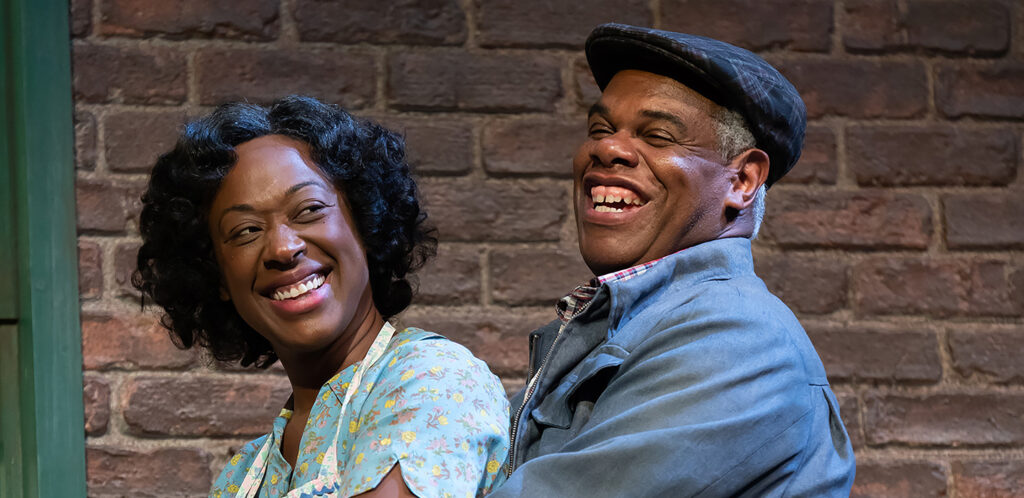
August Wilson’s Century Cycle
August Wilson’s Century Cycle is a towering achievement of 10 plays documenting the hopes and struggles of African Americans.

